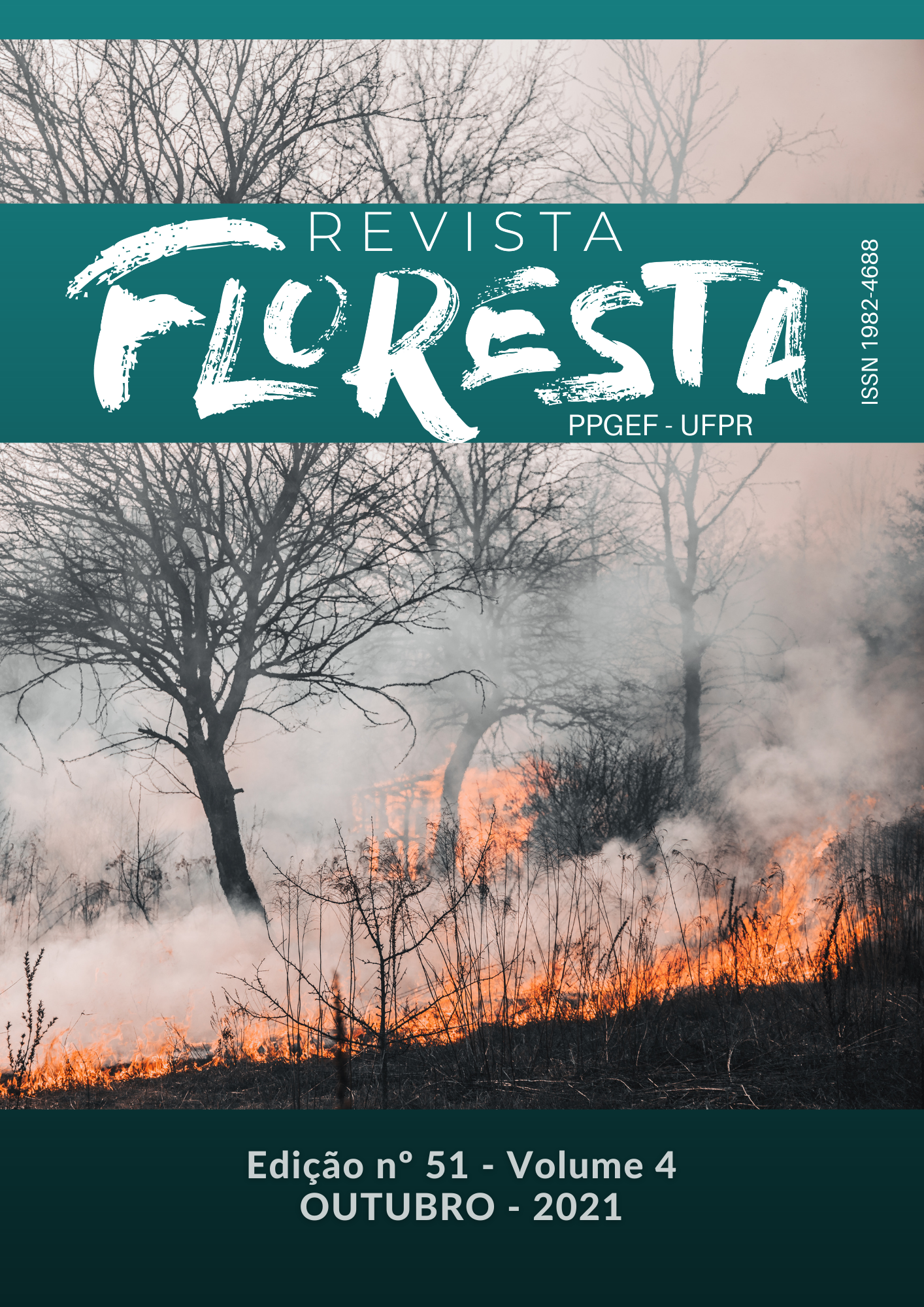Azospirillum brasilense INOCULATION ON SEED GERMINATION AND INITIAL GROWTH OF SEEDLINGS OF NATIVE FOREST SPECIES
DOI:
https://doi.org/10.5380/rf.v51i4.73520Palavras-chave:
rhizobacteria, seedling production, secondary roots, seed physiology.Resumo
Inoculation of rhizobacteria in seeds and plants has been documented as a stimulant and promoter of germination and growth of agricultural crops, but there is little information on native forest species. Therefore, the present study aims to evaluate the potential of Azospirillum brasilense inoculation in the germination of seeds and initial growth of seedlings of native forest species. The following experiments were carried out: (I) germination of seeds in germination chamber, and (II) initial growth of seedlings in nursery, both with four forest species (Cassia leptophylla, Lafoensia pacari, Mimosa flocculosa and Schinus terebinthifolius). For the four species, in both experiments, two treatments were used: inoculation of seeds with concentrated solution of A. brasilense and no inoculation of seeds (control). Physiological aspects of seed germination and seedling vigor were evaluated in the first experiment (germination speed, and length and dry weight of seedlings), and seedling growth was evaluated in the second experiment (height, collar diameter and dry weight of seedlings). Inoculation of A. brasilense in seeds of C. leptophylla, L. pacari, M. flocculosa and S. terebinthifolius did not promote beneficial or promising results for seed germination and initial growth of seedlings, so its use to produce seedlings of these species is not recommended.
Downloads
Publicado
Como Citar
Edição
Seção
Licença
Direitos Autorais para artigos publicados nesta revista são do autor, com direitos de primeira publicação para a revista. Em virtude da aparecerem nesta revista de acesso público, os artigos são de uso gratuito, com atribuições próprias, em aplicações educacionais e não-comerciais.A revista, seguindo a recomendações do movimento Acesso Aberto, proporciona acesso publico a todo o seu conteudo, seguindo o principio de que tornar gratuito o acesso a pesquisas gera um maior intrcambio global de conhecimento.
Conteúdos do periódico licenciados sob uma CC BY-NC-SA 4.0



